Posted by Elena del Valle on April 14, 2010
By Marcelino Miyares, Jr.
Director, Mercury Media en español

Marcelino Miyares Jr., director, Mercury Media en español
Photo: Mercury Media en español
A bottom line is a bottom line no matter what we call it. That is why I am a convert to the strategic importance of Hispanic Direct Response TV (DRTV). Taking a DRTV approach to the Hispanic market is a proven and valid model for Hispanic marketing because it focuses attention on the bottom line, not just the investment.
The Hispanic segment has reached critical mass as a demographic and few argue its potential contribution to virtually any brand’s performance in the general marketplace. Thanks to Hispanic DRTV, this is now measurable; and more to the point, allows marketers to forecast and optimize the ROI of a Spanish-language media budget.
Click here to read the complete article Hispanic Direct Response TV Apples are Manzanas
Posted by Elena del Valle on April 13, 2010
Information provided by our Event Partner
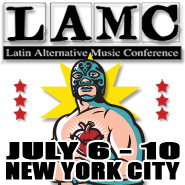
The 11th Annual LAMC (Latin Alternative Music Conference) returns to New York City on July 6 – 10, 2010. LAMC features panels and exhibitions, concerts, parties and art highlighting the best of Latin Alternative music and culture. LAMC is the only major conference geared toward the marketing of Spanish-language alternative music – the voice of today’s Latinos. This five-day event providing networking opportunities with the genre’s leading artists, label executives, journalists, managers, retailers and programmers, is the most extensive gathering of Latinos in entertainment to be offered by a music conference to date.
Latin Alternative Music Conference
Posted by Elena del Valle on April 12, 2010

DeeGee album cover
Photos, song:DeeGeeWorks
Chester (Wilfredo Martes), LuLu (Lourdes Santiago), Papito (Juan Morales) and DeeGee (Miguel Bonilla) known collectively as DeeGee will release DeeGee, their first independent urban Latin music album next month. The first single from the album, Cavernicolas, is being played in radio stations in the United States, Costa Rica, Argentina, Colombia, Spain, Israel, Mexico, Puerto Rico, and the United Kingdom. Scroll down to listen to Cavernicolas.
Martes, a rapper, is originally from the Domincan Republic. Morales, a native of Brooklyn of Puerto Rican descent, has experience as a tropical music singer in the studio and stage. Santiago, from Puerto Rico, is a vocalist and song writer.

DeeGee (Miguel Bonilla)
Bonilla, originally from Colombia, plays piano and drums, produces, arranges, and handles synth programming for DeeGee. He studied at the Juilliard and Manhattan schools of music. According to promotional materials, in 1990, Bonilla joined the Tito Nieves Orchestra and traveled extensively. Later he was piano player for Marc Anthony’s Band for two years before working with La India. Prior to launching DeeGee’s first album he worked in music production.
Click on the play button to listen to Cavernicolas from the DeeGee album
Posted by Elena del Valle on April 9, 2010

Mexican Migration and the U.S. Economic Crisis
In the past couple of years, traffic of undocumented immigrants across the Mexico United States border has declined (see Fewer Mexican immigrants arriving, similar number returning home). Thirty-five researchers participating in the Mexican Migration Field Research and Training Program (MMFRP) based in the Center for Comparative Immigration Studies at the University of California, San Diego, and in partnership with Mexican institutions, contributed a summary of their findings on recent migration from Mexico to the United States. Their work, edited by Wayne A. Cornelius, David Fitzgerald, Pedro Lewin Fischer and Leah Muse-Orlinoff, was published this year as a book titled Mexican Migration and the U.S. Economic Crisis A Transnational Perspective (Center for Comparative Immigration Studies, $29.50).
The researchers set out to better understand how economic shocks affect populations movements, specifically those across the Mexico to United States border. They were curious to know how people were managing in places that provided or received immigrants; how individuals were making decision about migrating, staying at home or staying in the United States; and the importance of U.S. immigration enforcement at the border and within the United States in discouraging immigration and encouraging the settling of immigrants in the United States.
The 269-page softcover book is divided into 10 chapters: Introduction; Coping with La Crisis; Double Jeopardy: How U.S. Enforcement Policies Shape Tunkaseño Migration; Economic Crisis vs. Border Enforcement: What Matters Most to Prospective Migrants?; Inhabiting Two Worlds: Tunkaseños in the Transnational Labor Market; Leaving to Learn or Learning to Leave: Education in Tunkás; Values in Conflict: Youth in A Culture of Migration; The Family Dynamics of Tunkaseño Migration; Sweet Dreams and Bitter Realities: Nutrition and Health Care in Tunkás and the United States; and Reshaping Community Participation: Tunkaseños in a Binational Context.
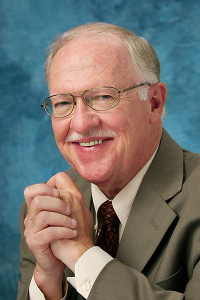
Wayne A. Cornelius, director emeritus, Center for Comparative Immigration Studies (CCIS)
Cornelius is director emeritus, Center for Comparative Immigration Studies (CCIS), University of California-San Diego as well as Distinguished Professor of Political Science. Fitzgerald, associated director, CCIS is author of A Nation of Emigrants: How Mexico Manages Its Migration. Lewin Fischer is senior researcher at the Instituto Nacional de Antropologia e Historia’s Centro Yucatán. Leah Muse-Orlinoff is a Ph.D. candidate in sociology at the University of California, San Diego.

Click here to buy Mexican Migration and the U.S. Economic Crisis
Comments:
Filed Under: Books
Posted by Elena del Valle on April 7, 2010
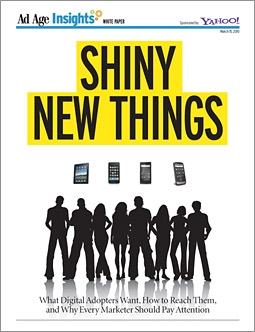
Photo: AdAge
For six weeks Laura Rich researched early adopters of digital technology focusing on their use and purchase of mobile devices, software, computers and televisions. She believes they play a pivotal role for companies introducing new products into the marketplace and highlights that this group of white men, mostly, “can be identified by what they do, not who they are.” Although she identified studies that indicate Latinos often take advantage of digital technologies at rates higher than the general market; what matters more than their race and gender and where they work (often technology companies), she points out in a white paper, is their use of information, and the way they buy products and share their opinions with like minded others.
These opinions can affect the acceptance or rejection of a new product into the market. Aware that their opinions matter these first users of technology products want to be heard by marketers and product makers, she says. Win their favor and you gain an advantage; risk their displeasure and prepare for the consequences, she points out illustrating with examples from well known companies such as Apple, Google, and AT&T.
The staff writer at AdAge shared her findings in Shiny New Things: What Digital Adopters Want, How to Reach Them, and Why Every Marketer Should Pay Attention, a white paper about what would be “most relevant to marketers wanting to reach this crowd.” She concluded early adopters are “opinion leaders” who play a key role in marketing. They are highly educated, have a higher social status and earn higher incomes than traditional consumers. They are often risk takers with high standards for products and companies and are more critical than regular consumers. Many are status seekers who value information more than most other consumers.
Based on her research, she concluded that thanks to the boom in social media, early adopters have a high potential to influence products, especially gadgets and online brands, she describes as “screen power.” Their influence is, she believes, is becoming evident in mega social media sites such as Twitter and Facebook.
According to her findings, 62 percent of early adopters will consider upgrading their mobile phone when a new model is released; 68 percent may have purchased three or more computers in the past two years; and 58 percent are more likely to have purchased three or more flat-screen TV’s in the past two years.
In the white paper, she quoted findings from Pew Internet and American Life and Yahoo! studies that outline digital technology use by ethnic groups. A Yahoo! study indicates Hispanics over index in their adoption of technology and media consumption compared to the general population.
A study by Yahoo!, Telemundo and Experian Simmons Research, she mentions, indicates more than two thirds of respondents had been online for more than five years; 90 percent have a cell phone (compared to 79 percent of the general population); 66 like to send text messages (compared to 38 percent of the general population; although only 61 percent had taken photos with a cell phone (compared to 79 percent of the general population.
Posted by Elena del Valle on April 6, 2010
Information provided by our Event Partner

August 16-20
As the reach of internet population continues to grow, SES looks to trace the economic implications and opportunities for marketers. SES San Francisco has compiled a new and ambitious program with 90% of our agenda featuring all new content.
Registration has now opened. SAVE up to $600 on a pass when you register now through June 4. Save an additional 15% when you enter 15MPR.
An Event Not to Miss
Some of the key things you’ll find at SES San Francisco include:
* New session tracks tailored for marketers at every experience level.
* Unique intimate networking events to share and exchange new search techniques.
* New product demonstrations and technical insight from industry leading vendors and service providers on our expo hall floor.
* Targeted training workshops and site clinics individual attention and critiques.
* Keynotes and panels from the most exciting speakers in the sector.
San Francisco SEO Services: A Deep Dive into Digital Excellence
Posted by Elena del Valle on April 5, 2010
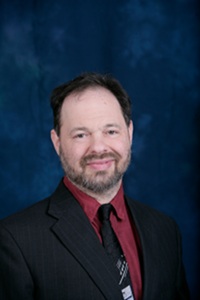
Author Shel Horowitz
Photo: Shel Horowitz
A podcast interview with Author Shel Horowitz is available in the Podcast Section of Hispanic Marketing & Public Relations, HispanicMPR.com. During the podcast, Shel discusses the issues relating to green marketing based on recently the published book Guerilla Marketing Goes Green, which he coauthored (see Authors share green marketing insights), with Elena del Valle, host of the HispanicMPR.com podcast.
Self described as an ethical and green marketing expert, book shepherd, writer, international speaker, consultant, community organizer, and frugalist Shel’s green efforts began with a one-toddler action against smokers at his parents’ party when he was three years old. Shel has been involved in environmental and social change movements his whole life.
In 1972, at age 15, he was involved in a community group that opposed a nuclear power plant proposed very near New York City (a proposal that the utility company quickly withdrew). A veteran of the 1977 Seabrook occupation, his first book, written when he was only 22, was about why nuclear power makes no sense. Shel is also the author of the e-book, Painless Green: 111 Tips to Help the Environment, Lower Your Carbon Footprint, Cut Your Budget, and Improve Your Quality of Life-With No Negative Impact on Your Lifestyle.
To listen to the interview, scroll down until you see “Podcast” on the right hand side, then select “HMPR Shel Horowitz ” click on the play button below or download the MP3 file to your iPod or MP3 player to listen on the go, in your car or at home. To download it, click on the arrow of the recording you wish to copy and save it to disk. The podcast will remain listed in the April 2010 section of the podcast archive.

Click here to buy Guerrilla Marketing Goes Green
Posted by Elena del Valle on April 2, 2010
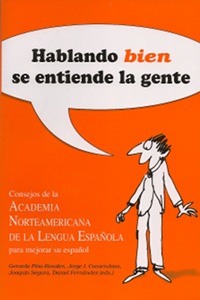
The Academia Norteamericana de la Lengua Española (North American Academy of the Spanish Language) wants Spanish speakers in North America to maintain good Spanish language standards. Toward that goal the New York based nonprofit organization published, Hablando bien se entiende la gente consejos idiomáticos de la Academia Norteamericana de la Lengua Española (Santillana USA Publishing Company, $14.99), a 188-page softcover book with Spanish language tips and advice.
“Hablando bien se entiende la gente has been very well received. I think that a plus of the book is its tone. We tried to avoid a professorial, academic tone, in favor of a lighter approach,” said Gerardo Piña-Rosales, president of ANLE, by email. “ANLE does not condemn any variety of Spanish spoken in the U.S.; we merely wish to remind people that, like any other language, Spanish has its own rules, and they should be followed. An additional problem is the influence of English on Spanish.”
The book, published in Spanish this year, was edited by Piña-Rosales, Jorge I. Covarrubias, Joaquín Segura who are members of the organization’s board of directors; and Daniel Fernández. It includes 45 illustrations by Héctor Cuenca. Eight men: Joaquín Badajoz, Emilio Bernal Labrada, Antonio Culebras, Fernando A. Navarro, Antonio Pamies, Luis Pérez Botero, Luis Ríos, and Mordecai Rubín; and one woman, Vanessa Lago Barros are listed as contributors.
The book is divided into the following six sections: Las apariencias engañan, Las cosas claras y el chocolate espeso, A nadie le viene mal aprender a conjugar verbos como el verbo amar, ¡Aplique bien las reglas de la gramática!, ¡Escríbalo y pronunciélo bien!, y ¡Conozca su idioma!
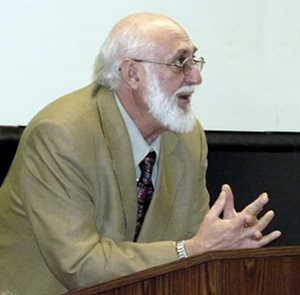
Gerardo Piña-Rosales, president, ANLE
“Our goal is not to police language usage but to help language users use Spanish so that it can be understood by all our Spanish-speakers,” said Piña-Rosales in a press release. “We hope that these ‘language capsules’ will help people who have doubts and want to use Spanish correctly. No one can dictate how people speak, but we can help those who write or work in communications fields use Spanish in ways that reflect universal usage.”
Founded in 1973, the Academia Norteamericana de la Lengua Española (ANLE) is the youngest of 22 national academies that make up the Asociación de Academias de la Lengua Española, an association of Spanish language academies across international borders.

Click here to buy Hablando (bien) se entiende la gente
Comments:
Filed Under: Books























